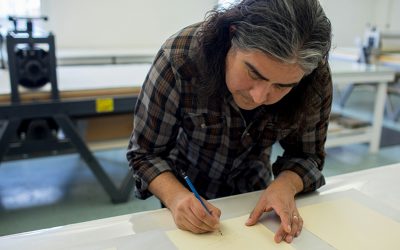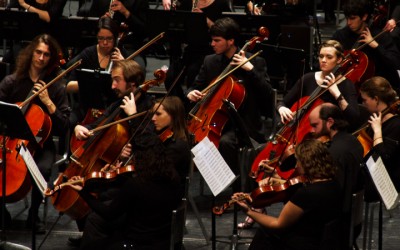Musicology Colloquium Series
Talk Title:
THE CRUELTY OF JAZZ: TOWARD A HEMISPHERIC POLITICS OF SOUND
Date and Time:
Thursday February 7, 2:00-3:30pm
Location:
Latin American and Iberian Institute (LAII) Conference Room
Talk Description:
Rooted in concepts of affect and Empire, this paper argues that jazz operated in various 20th century Latin American settings as a vital touchstone bearing the risks and benefits of urban modernization, hemispheric geopolitics, and transnational cultural production, “cruelly” echoing the United States’ cultural, political, and economic dominance in the hemisphere and beyond.
Biography:
 Jason Borge is an Associate Professor of Latin American Culture at the University of Texas at Austin, where he teaches courses on Latin American and Hemispheric popular culture, music, film, and literature. He has published widely on such topics as vernacular music and sound studies, Hollywood in Latin America, popular vanguardism, and the intra-hemispheric dimensions of literature and film. His latest book is Tropical Riffs: Latin America and the Politics of Jazz (Duke University Press, 2018).
Jason Borge is an Associate Professor of Latin American Culture at the University of Texas at Austin, where he teaches courses on Latin American and Hemispheric popular culture, music, film, and literature. He has published widely on such topics as vernacular music and sound studies, Hollywood in Latin America, popular vanguardism, and the intra-hemispheric dimensions of literature and film. His latest book is Tropical Riffs: Latin America and the Politics of Jazz (Duke University Press, 2018).
Caption for book cover: Tropical Riffs: Latin America and the Politics of Jazz (Duke, 2018)
Sponsored by The University of New Mexico Department of Music, The Department of Spanish & Portuguese, and The Latin American and Iberian Institute
Pulitzer winning alumnus Raven Chacon to debut new composition, perform
Pulitzer winning alumnus Raven Chacon to debut new composition, perform Tickets available for performances in Santa Fe, Albuquerque By Mary Beth King August 11, 2022 Pulitzer Prize winning Diné composer and sound artist Raven Chacon, who earned his Bachelor of Arts...
The American Prize in Vocal Performance—Women in Art Song and Oratorio, 2022 Winner
The American Prize National Nonprofit Competitions in the Performing Arts, David (Volosin) Katz, founder and chief judge, is honored to announce the winners, runners-up, and honorable mentions of The American Prize in Vocal Performance—women in art song and oratorio,...
UNMSO and UNM Choirs Present: A Concert For Healing
Friday, May 5 at 7:30 pmPopejoy HallUNM Symphony Orchestra directed by Dr. Matthew Forte.UNM Choirs directed by Dr. David Edmonds The UNM Choirs and Symphony Orchestra present a concert that speaks directly to the challenges faced by musicians during the COVID-19...



